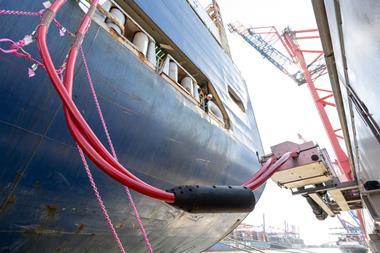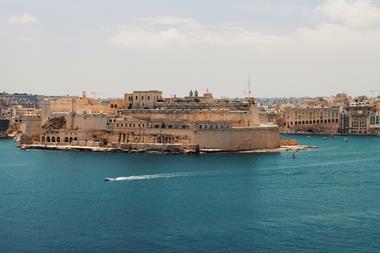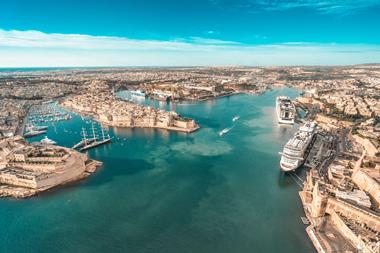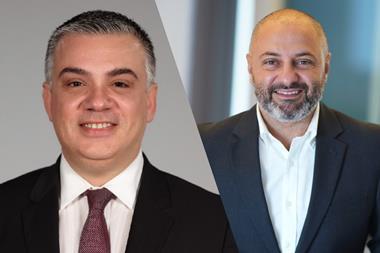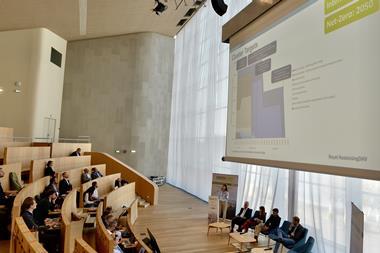The commitment to sustainability from ports of all sizes and in all regions, and the role that all stakeholders have to play in decarbonisation, were key themes to emerge during day two of the GreenPort Congress in Lisbon.
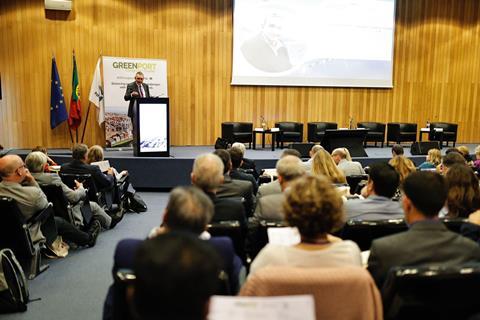
At the exclusive launch of the latest European Sea Ports Organisation (ESPO) Environmental Report, Anaëlle Boudry, senior policy adviser for sustainable development, energy and blue growth at ESPO and EcoPorts coordinator, noted that smaller ports made up almost half of the sample ports in the analysis. “It is always the larger ports getting the media attention but the smaller ports are also doing a lot and should not be underestimated,” she said.
During a later session on waste management and the circular economy, Nuno Matos, managing director of ECO-OIL, said the first sustainable fuel oil certified by the ISCC had a part to play in decarbonisation. EcoGreen Power Plus, a 100% recycled, low carbon alternative, could be a solution for maritime fuel, he said.
“To reach a new energy, we need to have a transition. There is uncertainty – no one knows what happens in the future. We have been talking about methanol, ammonia. The future might be a mix.”
He emphasised the importance of everyone being able to say “I am doing my part”.
Monitoring the top ten environmental priorities of the ports sector helps to establish priorities, said Anaëlle Boudry. The analysis showed that the top three concerns remained the same as 2022 – climate change, air quality and energy efficiency, and the same as 2021, although in that year air quality was ahead of climate change. The other concerns in the top ten were noise, water quality, ship’s waste, relationship with the local community, land-related port development, port waste and, a new entrant at number ten, water-related port development.
Seventy per cent of the port responders are adapting existing infrastructure to increase their resilience to climate change. 57% have onshore power supply available in one or more berths, and 42% have LNG bunkering at the port. Sixty-three per cent of ports now offer reduced port fees for greener vessels, based on metrics such as waste management and segregation, GHG emission reduction, noise reduction and environmental certification.
“Each port is absolutely unique and yet regulators and legislators talk about the ports sector, so you do need an overall view,” said Chris Wooldridge, conference moderator and science coordinator of EcoPorts EcoSLC [Sustainable Logistic Chain] – the body responsible for ports and terminals outside Europe, which was also launching its environmental report. Analysis of the responses for this report showed three trends, said Herman Journée, chairman of the ECOSLC Foundation.
“First, stakeholders are becoming very important and increasingly active in influencing the daily management of ports, transport and logistics. Ports answer this by becoming increasingly active in engaging stakeholders to make their strategy more sustainable.”
Stakeholders include society, government, port clients, port financers and port users, and pension funds are also becoming very active, said Journée.
Second, ports are moving from environmental management to sustainability based on the pillars of social, economic and environment. However, he said, the challenges for individual ports and partners are too complex for an individual company to make the whole chain sustainable. “So cooperation is upcoming.”
Third, there is increased cooperation between ports, transport, logistics and industry in making the ports, transport and logistics chain operations more sustainable – and a large number of ports are working together, said Journée. “That means the introduction of management standards is a necessity.”
Wooldridge said: “When an accident or incident happens in a port – and it will happen – the press will say, what is your policy, what is your framework [of good practice].”
He added: “We all want a clean planet. We all care about the environment. Compliance is non-negotiable. When there is an incident, some of you individuals will be followed to work by the press, asking – what are you doing about it? Show the evidence that you are managing and reporting responsibly.”


